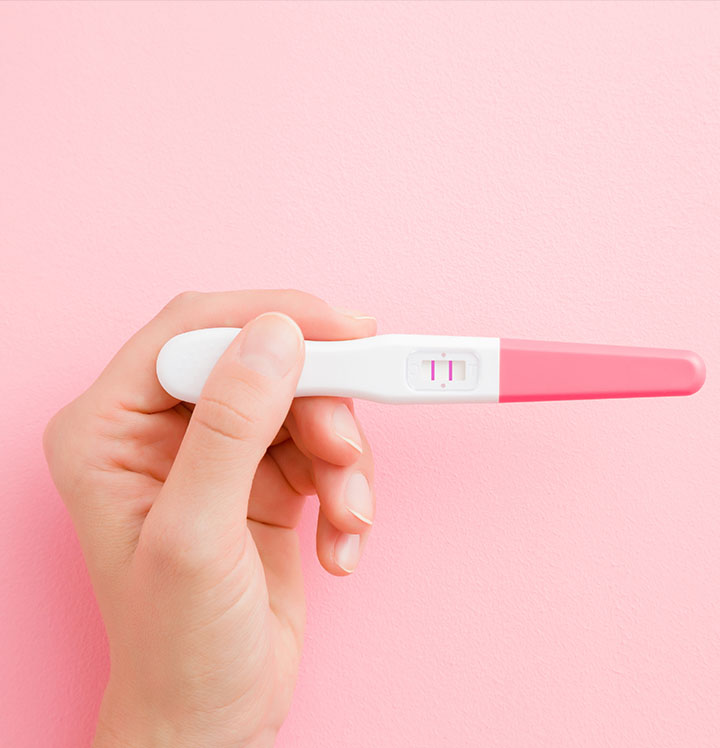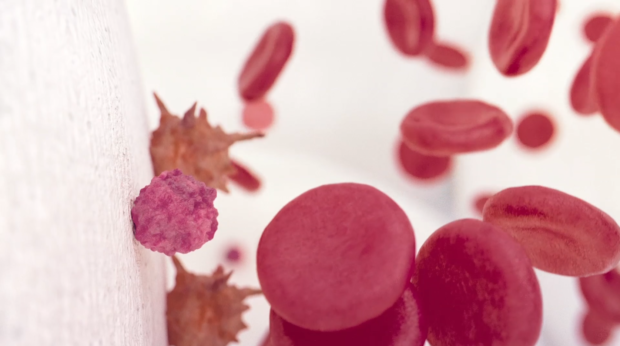When deciding to have children, questions regarding planning, the pregnancy itself, the delivery or breastfeeding, lie ahead. Even though it arrives with much hope and anticipation, it is a new phase in life that is not without fear and uncertainty. Perhaps one of the main fears for future mothers and fathers is the possibility that the baby is born with some type of condition that may affect its quality of life.
News
Planning a pregnancy in women with IBD
February 6, 2023
Patient

Hence the importance of planning a pregnancy, especially when we are talking about patients with inflammatory bowel disease (IBD), such as ulcerative colitis or Crohn’s disease. Although the majority of pregnancies in patients with IBD are successful and have no complications, it is essential to seek a consultation with healthcare professionals prior to conception to assess the patient’s condition, when it is advisable for her to become pregnant or what the risk factors are, as well as to explain what vitamin complexes she needs during pregnancy.
In this article we will explain in detail the aspects to be taken into account by IBD patients, mainly women, when they wish to have children.
First step: planning a pregnancy
Couples where at least one of the two parents has IBD must plan a pregnancy in advance in order to establish specific care and tests, for both the mother and the foetus. Some of these tests verify that the patient has no vitamin B12, iron and folic acid deficiencies, or macro- and micronutrient deficiencies among others. In addition to such an important point, it is necessary to identify whether the patient has dysplasia (growth of abnormal cells within a tissue or organ) or uterine cervical and colon carcinomas as these will directly affect their pregnancy.
On the other hand, it must be emphasised that the greatest risk for mother and foetus, perhaps above other factors, is active IBD. Therefore, the patient must never stop treatment on their own accord. Neither before nor during pregnancy, as they could have a relapse. The majority of complicated pregnancies (premature birth, low birth rate) are linked to the inflammatory process itself. Hence why it is a key aspect.
To ensure that the pregnancy runs as smoothly as possible and to avoid risks, the responsibility for caring and management of pregnant women falls to a multidisciplinary team of gastroenterologists and IBD surgeons, as well as obstetricians with expertise in high-risk pregnancies and paediatricians experts in newborns born from IBD parents.
Fertility: Active IBD vs inactive IBD
The majority of studies performed on fertility in men and women with IBD show that fertility is not affected when the disease is inactive. In fact, they are as fertile as the general population. Moreover, a complication-free pregnancy is possible as long as the disease is not active.
Nevertheless, it is common that fear of adverse drug reactions on the foetus, of having a flare-up during pregnancy or of not being able to combine the disease with children, leads patients to make the decision not to have children. Hence, the fact that the number of pregnancies in patients with ulcerative colitis or Crohn’s disease is lower than in the general population is mainly due to a carefully considered decision taken within each couple rather than to infertility per se.
Another reason why patients with inactive IBD voluntarily decide not to become parents is the idea that the baby may develop their disease, which is also an obstacle. In this respect, if only one parent has IBD, the chance of the child developing the disease is less than 5.2%. This percentage increases to 33% if both parents have some form of inflammatory bowel disease1.
On the opposite side are the patients with active IBD, whose fertility can be affected. Sometimes the outbreak itself or being in a situation of malnutrition can be the factors that reduce fertility, although they are not the only ones. Other mechanisms that can influence it are: inflammation spreading to the Fallopian tubes and ovaries in Crohn’s disease, when intercourse is painful (dyspareunia) due to active perianal disease or when adhesions have formed in the pelvis after surgeries like proctocolectomy with ileoanal pouch.
Despite this dark scenario, there are studies offering hope to patients undergoing proctocolectomy with ileoanal pouch who have problems conceiving. In these cases, in vitro fertilisation techniques are a possibility for them to consider because pregnancy rates are similar to those of patients with ulcerative colitis, with or without an ileoanal pouch2.
Under no circumstances must patients stop treatment when they become pregnant without first consulting their medical professional. Why? Because stopping or suspending medication on their own decision is worse and more harmful than the treatment’s possible adverse events.
Even though the majority of drugs are currently considered safe during pregnancy and breastfeeding, the following are unsuitable for pregnancy: Methotrexate, Tofacitinib, Thalidomide, 6-Thioguanine (pregnancy) and Ciclosporin (breastfeeding). For men, sulfasalazine treatment can affect sperm count and motility, although it is reversible.
To avoid reaching this situation in which the patient is taking drugs that are contraindicated for pregnancy or can abandon the treatment on his/her own, the healthcare professional must know, as explained above, the patient’s intention to have children, because only then can he/she replace the treatment with other drugs or techniques such as granulocyte-monocyte apheresis, more suitable for pregnancy.
This latter procedure, granulocyte-monocyte apheresis, is a non-pharmacological treatment that involves removing inflammatory cell lineages or mediators from the bloodstream by passing the blood through a column filled with cellulose acetate beads where these are adsorbed/retained. This process is a non-pharmacological treatment that offers an effective and safe alternative to patients who do not respond to other treatments or, as in the case of pregnant women, cannot take certain drugs due to the side effects they cause.
- FERTILIDAD Y EMBARAZO EN PACIENTES CON ENFERMEDADES INFLAMATORIAS INTESTINALES | Revista Médica Clínica Las Condes (elsevier.es)
- In Vitro Fertilization Is Successful in Women With Ulcerative Colitis and Ileal Pouch Anal Anastomosis – PubMed (nih.gov)
- FERTILIDAD Y EMBARAZO EN PACIENTES CON ENFERMEDADES INFLAMATORIAS INTESTINALES | Revista Médica Clínica Las Condes (elsevier.es)
Contact UsFor more information
Contact Us

